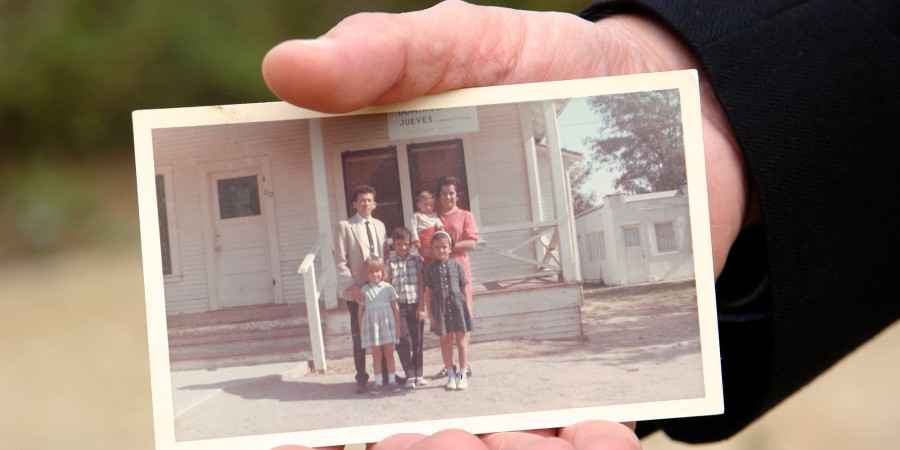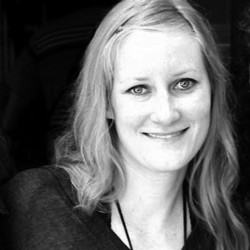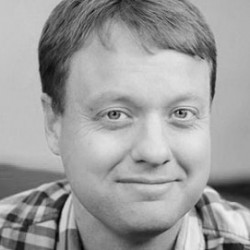
To Abuelo’s by Midnight
By David Moore [MA ’09] as remembered by Juan Martínez
Editorial Note
“Story connects us as instantly as pushing a plug into a wall socket. When a reader is moved to say ‘that is my story, too!’ an electric circuit is completed. Then, a light is shed on a corner of the truth that might not have been seen before.”—from To Have the Mind of Christ? Start by Telling Stories by Lauralee Farrer, Lead Storyteller and Editor in Chief
 Papa is driving and I’m in the back seat. We’re past the dangerous Mojave and Quartzite, with their expensive radiator caps. From Indio to Tucson, “You want to be past Tucson before noon because of the heat,” Papa always says. We know, we all think. We’re about 70 miles outside of Van Horn. Papa likes to joke that El Paso is halfway between our home in the Central Valley and our family in South Texas and Monterrey, Mexico. We do this every year. It’s our adventure.
Papa is driving and I’m in the back seat. We’re past the dangerous Mojave and Quartzite, with their expensive radiator caps. From Indio to Tucson, “You want to be past Tucson before noon because of the heat,” Papa always says. We know, we all think. We’re about 70 miles outside of Van Horn. Papa likes to joke that El Paso is halfway between our home in the Central Valley and our family in South Texas and Monterrey, Mexico. We do this every year. It’s our adventure.
“The sun is riz
The sun is set
And here we is In Texas yet.”
Papa likes to quote that. He saw it on a postcard in El Paso. Even though we have been in Texas for hours, we won’t be at my grandfather’s farm near Monterrey until after midnight. I bet my cousins will be waiting for us. I hope that there’s barbacoa. We’re eating homemade burritos or baloney sandwiches until we get there.
I haven’t seen that postcard. When we stop, Papa gets to go inside, but we stay in the car. The blankets we drape as sunshades across the windows make great covers for watching strangers in secret at the gas stations. Papa says we’re not welcome in some places. That’s nothing new. I’m used to being the outsider. I was born in Chicago, but in California, most of my friends are from Mexico. When they make me mad, I say, “I’m going to call la migra on you!” Then they get mad and call me “el aleluya” because I don’t go to mass. I go to Papa’s church. One time, some people came to our house to offer to help Papa move out of town. They must have made a mistake because Mama said we’re not moving anymore. She’s had enough of that. All over West, Mama and Papa picked apples, lemons, strawberries, almonds, oranges. We moved from field to field. When they lived in Chicago, they had me. Then after two months, Mama said it was too cold. So we moved to California. Suddenly we weren’t working on farms anymore. My dad became a pastor and we started going to church every Sunday. I wake up when Papa stops for gas in Alpine. I peek out the windows. It’s morning, and Papa has driven through the night again. Our old Fairline can’t take the heat of the daytime sun, so a little ways out of town, we’ll pull off under a tree and Papa will sleep. I stay in the car, but I wish I could go exploring. I have to be quiet when Papa sleeps. Sometimes he stops at night at a rest area and sleeps on a picnic table. Or if it’s really hot, under it. Mama is supposed to sleep, but I can tell she’s bored. Mama isn’t used to travelling long distances—at least she wasn’t before she met Papa. I wish Mama could drive, too. When I am old enough, I will drive, too. Maybe next year we can stay in a motel in Lordsburg. Papa has said something about it a couple of times.
Living with Unjust Legacies: Race, Justice, and Privilege From a Panel featuring Juan Martínez “Every culture, every society, has people who are privileged and people who are not, and those in privilege get to tell the story.”
My dad is a great driver. Just last week, we were driving up a mountain road, and a horse came jumping over a fence right in front of us. Papa slammed on the brakes and we all flew forward when we crashed into it. The horse hit the front of the car, and the car stopped running. The farmer who owned the horse came running up to us. I could hear Mama praying. I think she was praying for the horse while Papa talked to the farmer. We had to stay in the car, but we could hear the horse whining. The farmer said it wasn’t our fault. Mama quit praying and said, “thank you, thank you, thank you” under her breath. I don’t know why she quit praying. She told us the horse would be all right, but Papa told me later that horses don’t get better very often. It was an accident, but Papa is going to try to avoid hitting anything else for awhile.
Papa’s church raised money to fix our car so we could go on our trip.
Papa wakes up after an hour. We eat some of the burritos Mama has packed. Papa says we’ll be at Abuelo’s by midnight.
The night passes and we bounce down the two-lane highway. I peer out the blankets to the mesquite trees by the side of the road. I know there are animals out there and wonder if they’ll jump in front of him. I think about that horse and pray that he got better—and that he stays inside the fence.
I wake up when we start to slow down. I think we are in a town, but there are no buildings, just flashing lights. I worry that Papa has been speeding, but he shakes his head. It’s not police, it’s la migra. They want to check our car.
The officer talks to Papa. “Is everybody in the car a U.S. citizen?” I want to shout, “I am! I am!” But Papa has told me to keep quiet when this happens. Mama gives him her papers. Papa gives him his papers. They want Papa to get out.
I peek out the blanket and watch the dog sniff our car. I want to pet the dog because he looks lonely. Suddenly, the back doors open and a flashlight shines in my eyes. The officer lowers the light and my eyes adjust back to the dark.
They eventually wave us on.
We go through Laredo. I get out to stretch again. We’re still hours from Abuelo’s. I wish he lived closer, but I’ll get to go to the creek with my Mexican cousins and later to the beach with my tejano cousins. The ocean in Texas is warm like a bath, not cold like the beach in California.
The only thing to do at this point is listen to the radio. Papa likes to listen to the stations from Mexico. They call them “Border Blasters.” I think about radio stations with big guns, but Papa just says they are really big radio stations pointed towards the U.S. We listen to preachers sometimes, but Wolfman Jack also has a program on one of them. He plays songs that white people like to listen to. I like some of them, but Papa does not approve.
I fall asleep as one of the preachers signs off. I plan out what I will do first with my cousins: First, we’ll swim in the creek. Then, we’ll play tag. Maybe we can go to the neighbor’s house and watch television. They do not charge too much to let us watch.
The bouncing on a dirt road wakes me up; we’re on Abuelo’s driveway two days after we left. The old Fairlane made it through. So did Mama.
The barbacoa is delicious.
This story was originally published in November 2013.

Por David Moore [MA ’09] recordado por Juan Martínez
Nota Editorial
“La historia nos une instantáneamente como conectar una clavija en una toma de corriente. Cuando un lector se emociona en decir ‘¡esa es mi historia, también!’ un circuito eléctrico se completa. Entonces, una luz se derrama en un rincón de la verdad que quizås no se había visto antes.”—de To Have the Mind of Christ? Start by Telling Stories
—Lauralee Farrer, Cuentista y Editora Principal
 Papá está conduciendo y yo estoy en el asiento trasero. Estamos más allá del peligroso Mojave y Quartzite, con sus tapas de radiadores caras. Desde Indio a Tucson, papá siempre dice “Hay que pasar Tucson antes del mediodía a causa del calor”. Y siempre pensamos lo mismo, “ya sabemos”.
Papá está conduciendo y yo estoy en el asiento trasero. Estamos más allá del peligroso Mojave y Quartzite, con sus tapas de radiadores caras. Desde Indio a Tucson, papá siempre dice “Hay que pasar Tucson antes del mediodía a causa del calor”. Y siempre pensamos lo mismo, “ya sabemos”.
Estamos a unas 70 millas más allá de Van Horn. A papá le gusta bromear diciendo que El Paso está a medio camino entre nuestra casa en el Valle Central y la familia en el sur de Texas y Monterrey, México. Hacemos esto todos los años. Es nuestra aventura.
“El sol sale
El sol se pone
Y todavía estamos
En Texas.”
A papá le gusta decir eso. Lo vió en una tarjeta postal en El Paso. A pesar de que hemos estado en Texas durante horas, no vamos a estar en el rancho de mi abuelo cerca de Monterrey hasta después de la medianoche. Apuesto a que mis primos nos estarán esperando. Espero que haya barbacoa. Estamos comiendo burritos caseros o sándwiches de mortadela hasta llegar.No he visto esa tarjeta postal. Cuando nos detenemos, Papá entra, pero nosotros nos quedamos en el coche. Las mantas que colgamos como parasol en las ventanas, sirven de excelentes cubiertas para espiar secretamente a la gente extraña en las gasolineras.Papá dice que nosotros no somos bienvenidos en algunos lugares. Eso no es nada nuevo. Estoy acostumbrado a ser el “extranjero”. Nací en Chicago, pero en California, la mayoría de mis amigos son de México. Cuando ellos me hacen enojar, les digo: “¡Voy a llamar a la migra!” Entonces ellos se enojan y me llaman “el aleluya” porque yo no voy a misa. Yo voy a la iglesia de papá. Una vez, unas personas llegaron a nuestra casa para ofrecerle ayuda a papa para mudarse del pueblo. Ellos deben de haber cometido un error porque mamá dijo que ya no nos moveríamos. Ella ya no tiene ganas de estarse mudando.
A través del oeste, mamá y papá recogieron manzanas, limones, fresas, almendras, naranjas. Nos trasladamos de campo a campo. Cuando vivían en Chicago, me tuvieron a mí. Luego, después de dos meses, mamá dijo que era demasiado frío. Entonces nos mudamos a California. De repente ya no estábamos trabajando en el campo. Mi padre se hizo pastor y comenzamos a ir a la iglesia cada domingo.
Me despierto cuando papá se detiene para cargar gasolina en Alpine. Me asomo por la ventana. Es de mañana, y papá ha conducido a través de toda la noche otra vez. Nuestro viejo Fairline no puede recibir el calor del sol del día, así que después de salir un poco del pueblo, nos detenemos debajo de un árbol y Papá dormirá. Yo tengo que permanecer en el coche, pero me gustaría poder ir a explorar.
Tengo que estar tranquilo cuando duerme Papá. A veces él se detiene de noche en un área de descanso y duerme en una mesa de picnic o debajo de ella si hace mucho calor. Se supone que mamá duerma, pero es claro que está aburrida. Mamá no está acostumbrada a viajar largas distancias—a lo menos no lo hacía antes de conocer a Papá.
Viviendo con Legados Injustos: Raza, Justicia y Privilegio
Desde un panel donde se presentó Juan Martínez“Cada cultura, cada sociedad, tiene personas que son privilegiadas y personas que no lo son, y aquellos con privilegio llegan a contar la historia.”
Mi papá es muy buen conductor. Apenas la semana pasada, estábamos manejando en una carretera montañosa, y un caballo saltó una cerca y se nos puso en frente. Papá frenó de golpe y todos volamos hacia adelante cuando chocamos con él. El caballo chocó el frente del coche y el coche dejó de funcionar. El granjero que era dueño del caballo vino corriendo hacia nosotros. Yo podía oír a Mamá orando. Creo que ella estaba orando por el caballo, mientras que Papá hablaba con el granjero. Tuvimos que permanecer en el coche, pero podíamos oír al caballo quejarse. El granjero dijo que no era nuestra culpa. Mamá dejó de orar y dijo: “gracias, gracias, gracias” en voz baja. No sé por qué dejó de orar. Ella nos dijo que el caballo iba a estar bien, pero papá me dijo más tarde que los caballos no mejoran muy a menudo. Fue un accidente, pero papa va a tratar de evitar chocar contra cualquier cosa por un tiempo.
La iglesia de papá recaudó dinero para arreglar el coche para que pudiéramos continuar nuestro viaje.
Papá despertó después de una hora. Comimos algunos de los burritos que Mamá había empacado. Papá dice que estaremos en casa de abuelo para la medianoche.
La noche pasa y nosotros vamos por la carretera de dos carriles. Me asomo por las mantas y veo los árboles de mezquite por el lado del camino. Sé que hay animales allá fuera y me pregunto si saltarán frente a nuestro auto. Pienso en el caballo y oro para que se haya mejorado—y para que se quede dentro de la cerca.
Me despierto cuando empezamos a reducir la velocidad. Creo que estamos en un pueblo, pero no hay ningún edificio, sólo luces intermitentes. Me preocupa que Papá haya ido a exceso de velocidad, pero él mueve la cabeza. No es la policía, es la migra. Quieren revisar nuestro auto.
El oficial habla con Papá. “¿Son todos ciudadanos de EEUU los que están en el coche?” Yo quiero gritar: “¡Yo soy!, ¡Yo soy!” Pero papá me ha dicho que guarde silencio cuando esto sucede. Mamá le da sus papeles. Papá le da sus papeles. Ellos quieren que papá salga del coche.
Me asomo por la manta y observo el perro olfateando nuestro coche . Quiero acariciar al perro porque se ve solo. De repente, las puertas traseras se abren y una linterna alumbra en mis ojos. El oficial baja la luz y mis ojos tratan de ajustarse nuevamente a la oscuridad.
Eventualmente nos hacen señas para que continuemos.
Pasamos por Laredo. Salgo a estirarme de nuevo. Aún estamos a horas del Abuelo. Yo desearía que viviera más cerca, pero voy a poder ir al arroyo con mis primos mexicanos y después a la playa con mis primos tejanos. El océano en Texas es cálido como un baño, no frío como la playa en California.
Lo único que se puede hacer en este momento es escuchar la radio. A Papá le gusta escuchar las estaciones de México. Las llaman “Border Blasters”. Me imagino a las emisoras de radio con artillería pesada, pero Papá solo dice que realmente son grandes emisoras de radio apuntando hacia los EE.UU. Nosotros a veces escuchamos a los predicadores, Wolfman Jack también tiene un programa en una de ellas. El coloca canciones que a la gente blanca le gusta escuchar. Me gustan algunas de ellas, pero a papá no le gustan.
Me duermo cuando se despide uno de los predicadores. Planifico lo que voy a hacer primero con mis primos: En primer lugar, vamos a nadar al arroyo. Después, vamos a jugar a la mancha. Quizás podamos ir a la casa de los vecinos para ver la televisión. No cobran mucho para dejarnos verla.
Los saltos en un camino de terracería me despiertan; estamos en la entrada de la casa de abuelo dos días después de haber salido. El viejo Fairlane lo logró. También Mamá.
La barbacoa está deliciosa.
Este artículo fue publicado en noviembre de 2013.



